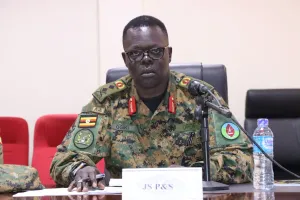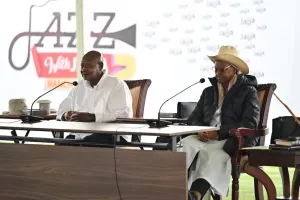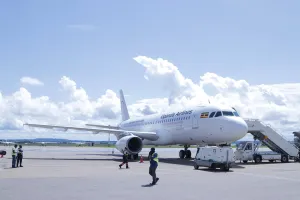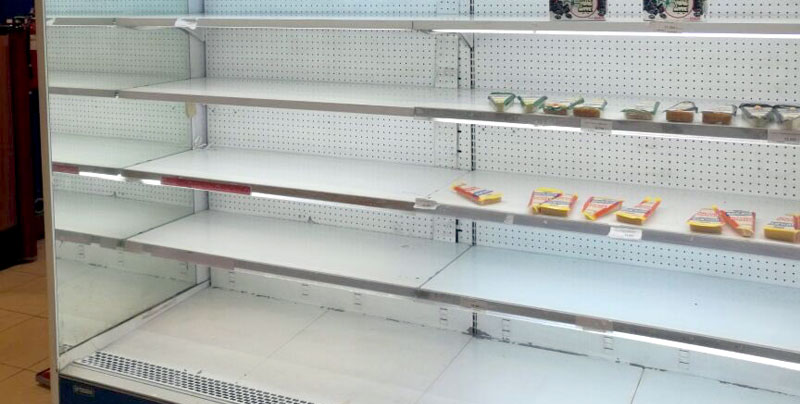
You know Uganda’s economy ain’t working when Entebbe Road has light traffic, and churches and mosques are crowded!
On Wednesday this week, the publicist for Ministry of Finance, Planning and Economic Development (MFPED), Jim Mugunga, wrote an article in the government-owned newspaper which reminded me of a piece I wrote in these pages three years ago.
First, what did Jim write about? He wrote about the talk of the town; the ailing economy, in particular explaining “where all the cash has gone.” After amplifying all that his boss, Keith Muhakanizi (the secretary to Uganda’s treasury) has lately been citing, Jim concluded that “so far so good for Uganda’s economy…”
What did I write three years ago which Jim’s article reminded me about? In August 2013, I wrote in these pages a piece under a simple title, “Let us sell government.”
Mr. President, Jim’s article reminded me that had you heeded my advice then, Ugandans would have been saved of people like Jim and his bosses, let alone the agony of reading or listening to what they write or say lately.
I think you remember, Mr. President, that my only worry then was whether if you accepted to privatise your government, we would secure a willing buyer. Now I am even more worried. I am worried about the possibility of failing to get a willing buyer, or if we chanced on one, the glaring possibility of selling our gigantic government at ‘forced price’ far below the market price!
For years I have written my pens empty about the myriad inefficiencies in your government, Mr. President. We nearly agreed that it was actually not the economy that was failing, but the politics. That your government failure had resulted into the failure of our economy. Gradually the results have been coming out.
Obsession with GDP, M2!
A couple of weeks ago, we were having an online conversation about what I termed the ‘real’ macroeconomic indicators of Uganda’s economy. It all started with Charles Onyango-Obbo, the legendary journalist, posting an image of empty shelves at one of the top stores in Kampala.
When I commented that the empty shelves were just one of the ‘real’ indicators of the state of health of Uganda’s economy, Charles chipped in with the wisdom of the proverbial pregnancy; beyond a certain point, a woman cannot hide it!
For nearly every single day of this year, Ugandans have been waking up wondering what exactly was going on in their economy. Economies are funny; their managers (such as Jim, Keith and others) tend to be obsessed with things that make very little sense (if at all) to the ordinary person on the street.
When asked to explain the state of the economy, the economists at MFPED and at Bank of Uganda (BoU) often cite things such as gross domestic product (GDP), GDP growth rates (the rate at which total economic output increases per year), inflation rate (the rate at which prices are rising), M2 (base money in circulation), real exchange rate (the purchasing power of the country’s currency relative to other currencies), percentage of exports as a share of GDP, debt stock, and so on and so forth.
Yet people look at different things to make sense of the economic realities around them. They look at the money they have in their wallets and/or at bank, not the GDP figures read out by Hon.
Matia Kasaija, the Minister of MFPED. They also look at how their businesses perform – the inventories they hold, the daily sales they make, their ability to pay their bills and retain some money to deposit into their bank accounts, and so on.
Confusing ordinary folks
When they look at these and other real stuff and realise they cannot access them as easily as they did before, they resort to us economists for the answers that, honestly, sometimes we hardly have. For the lack of the answers, those who work with government, the likes of Jim, Keith and BoU Governor Mutebile, open their policy toolbox and recite the usual macroeconomic concepts – inflation, M2, export/GDP ratio, CBR etc.
This ‘rocket science’ only confuses the ordinary folks the more. So they run to us who are out of government hoping that our free speech will allow us to explain things better. Like physicians, we try to correlate symptoms in the economy (the high prices, falling value of the shilling, rising interest rates) with our conventional textbook knowledge.
Since we attended the same classes with the Jims of this world, we provide very little help to the ordinary men and women perturbed by the economic hardships before them.
When I started writing this column ten years ago, I committed myself to writing only the “economics that works” for the ordinary soul.
I know that citing statistics on foreign direct investment, GDP growth, inflation, M2, public debt stock etc. as well as events such as global economic slowdown are fundamentals in the analysis of economic performance.
Unfortunately these hardly make sense to the folks I interact with at the National Theatre, Makindye, Nakawa, Butambala and even at my main workplace at MUBS (a convergence of academic gens), who continuously inquire with very disconcerted faces, “Ramathan, what the hell is going on with our economy?”
They look at real life facts: Nakumatt’s failure to pay its suppliers (hence the empty shelves), their own inability to fuel their cars (hence the light traffic on roads lately), their sitting idle in their hitherto busy shops and kiosks (hence the piling up of unsold stock), their empty wallets (hence flopping music shows and wedding meetings), and their failure to secure a seat inchurch or mosque because everyone is seeking God’s help to guide their broke lives.
The realities people consider
They also considers other unusual realities such as the failure of big banks such as Crane Bank, watching their President on TV resorting to riding bicycles to fight drought, uncoordinated messages from the Minister of MFPED and his technocrats on the state of the economy, a single US dollar purchasing a whopping Shs. 3,600, bars dulling without patrons in one of the top global alcohol consuming countries, etc.
These are the realities people want us economists to explain. What exactly has led to their persistence? When is the situation likely to normalise?
Recently I told listeners of one of the top radios in the country that our situation has unusually been bad for too long to be explained by human beings. May be it is God who now knows why the economy is in the shape it is. He knows why these days He delays the rains such that agriculture (our main activity) fails.
May be it is God who knows why our neighbours in South Sudan cannot stop fighting to allow us sell our dry fish and maize flour in peace. He knows why all our past friends who used to give us some aid have since abandoned us.
Most importantly, it is God who knows why two bush-war comrades who put their lives at real risk to liberate this country, have spent 15 full years fighting for power using the very people they promised to hand the power to on their arrival 30 years ago. In the process, they have created an environment that is too uncertain and risky for meaningful business and investment.
God and self-inflicted problems
Last week, the MUBS Economic Forum — an economic think-tank I head at Makerere University Business School — organised its 17th Public Forum. Since June 2011 (when the think-tank was founded), we have had debates of public interest ranging from the runaway inflation of post-2011 elections (our first debate in June 2011) to the turbulence in the banking sector (the one we had last week).
Over the past five years, we have discussed how Uganda could make land and food markets work better for the rural farmers. We have also discussed how productivity could be improved to save the BoU from over relying on a good medicine (demand-side monetary policy) to treat a wrong disease (supply-driven inflation).
We even reflected on the 50 Years of Independence, where we analysed the national budgets of the past 50 years which left us wondering whether the national budget was still relevant to the average Ugandan.
Mr. President, our forum has also debated the Uganda’s fiscal policy and the election cycles, trying to make sense why every time we had a Presidential election the economy literally stopped. We have deliberated on the liberalisation policy that we chose to deliver Uganda to the Promised Land and the growth paradoxes it has created.
In all these debates we have had, the verdict came out last week. One panelist succinctly put it thus, “The major cause of the turbulence in Uganda’s economy is ‘order from above’.” This gives me a lot of hope. It gives me hope because ours is fate in our own court.
Although I referred to God somewhere above, we need to stop burdening him with self-inflicted problems. God cannot listen to people who cut forests to build wooden churches to pray for rain. Neither will He answer our now popular ‘National Prayers’ to make the politics work for a people that chose to flout all the political rules they set by themselves.
Experts at the Centre for International Development at Harvard University project that if we could mitigate political risk, Uganda will be the second fastest growing economy to 2024, beaten by only India. Fellow Ugandans, are you listening?















Ramathan Ggoobi
Ramathan Ggoobi is Policy Analyst, and Researcher. He lecturers economics at Makerere University Business School (MUBS) and has co-authored several studies on Uganda's economy. For the past ten years, he has published a weekly column 'Are You Listening Mr. President' in The Sunrise Newspaper, Uganda's Leading Weekly
Leave a Comment
Your email address will not be published.